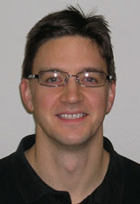Even on a good day I am daunted by child-rearing. I have always felt more comfortable tending annual vegetables since each year offers the chance to start over. But children are more like apple or peach or cherry trees, bearing long-term witness to the cumulative effects of nurture or neglect.
Like most parents, Cyndi and I want our children to be competent in the various academic disciplines and to have the freedom and guidance they need to develop as creative, empowered persons. So as our twin girls approached kindergarten age, we agonized over what to do about their education. After weighing our few options, we finally enrolled them in the public school a short distance from our farm. It had an excellent reputation, and it offered us the chance to connect to our local community in a way that home schooling in our rural area or sending the children to a distant Catholic or alternative school could not.
In addition to providing secular education, of course, we are also raising our children Catholic. This means helping them cultivate a prayerful, personal relationship with God through Christ in the power of the Holy Spirit and inviting them into the fellowship of believers that is the local and universal church. It requires giving them a solid grounding in the catechetical elements of the faith and a strong sense of identity rooted in a rich sacramental tradition. It entails, as Archbishop Timothy Dolan has argued in these pages, fostering in them a commitment to justice and service that will help them become contributors to society.
If the 21st century promised to be an ordinary century, then the sort of education and formation I have described would, I hope, give our children a good chance to become faith-filled, thriving and responsible adults—no mean feat. I believe, however, that children of this generation have been born at a special hinge point in human history, which will ask more of them than mere mature adulthood.
As a global human community we now face a stark choice. One possibility is what the economist David Korten termed the “Great Turning”: when we begin learning how to live together peaceably, within our planetary means. The other possibility is the “Great Unraveling”: continuing with business as usual until a rising population combined with unjust, profligate use of resources finally outstrip the planet’s ability to supply our needs and absorb our wastes.
For our children to meet such a challenge, they need formation that is not only conventionally Catholic, but also deeply catholic—in that word’s original Greek sense of “universal.”
To become catholic means that our children learn to see the world “according to the whole,” transcending the black-and-white thinking and loveless, angry, insider/outsider tribalism that so characterize American public “discourse,” whether secular or religious. At its core, a catholic vision is also a truly Catholic vision: viewing the world through a Trinitarian lens. The divine dance of paradoxical difference-in-unity enables us to recognize creation as a reflection of its loving Creator: infinitely diverse and yet intimately connected, each part belonging to all and responsible to all.
Cultivating this sort of vision in children, however, is a risky business. To the extent that they truly see the world with catholic eyes, they will have to confront its myriad forms of suffering. They will rightly ask us uncomfortable questions about our relative privilege in the face of injustice, poverty and environmental de-gradation. In their catholic solidarity they may even, heaven help us, demand catholic action: that our family more fully embrace the seismic economic, technological, ecological and social changes required in our time and prophetically witnessed, for example, in “Caritas et Veritate.”
I have no ready-made formula for a catholic Catholic education, and I doubt there is one; it will always require child- and situation-specific improvisation. My parenting experience also confirms that when it comes to being catholic Catholics, our children are more likely to be our teachers than our students. Not a novel idea, really—it stretches back at least to the prophet Isaiah, who foresaw of disparate groups that “a little child shall lead them” until the lion lies down with the lamb and no one “shall…hurt or destroy in all my holy mountain; for the earth shall be full of the knowledge of the Lord."









The majority of children I speak to have little or no understanding of the depth of our Catholic faith or small c-catholic thought. Sadly, the parents seem to just count on our
catholic school our 3 1/2 year old daughter attends. It is my job to pass on our faith.
If she picks up something at her school wonderful, but my job is her salvation.
Pray for us,
Dave Rosen
St Thomas Aquinas Parish, Dallas, Texas
Anna M. Seidler